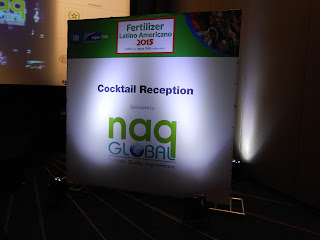| Biosimilars Latam |

Company: Fleming Europe [Slovakia]
Dates: November 18th and 19th, 2015
Location: Sao Paulo, Brazil
Venue: Tivoli Sao Paulo - Mofarrej
Languages: ENGLISH / SPANISH / PORTUGUESE
# of Booths: 2
# of Interpreters: 4
Event
Summary
Recent
improvements in local regulation, added to the high expertise and development
of biosimilars in the region are encouraging
multinational
pharmaceutical companies to enter this emerging market. Global pharmaceutical
companies are partnering with local businesses to penetrate the market, with the idea of
producing and ommercialising locally and internationally. The first
biosimilar to enter the region was insulin, followed by interferon and more
recently monoclonal antibodies (mAbs). The last ones are still in an early
stage and need further development. MAbs represent an opportunity for areas
such as oncology, allergology and rheumatoid arthritis, and will probably
widen the biosimilars market, but currently are far more expensive than other
biologics.
The
Brazilian healthcare system provides universal access to health to the
population, and since 2012 has been discussing with some companies for the
nationalization of some biologic drugs, through the productive development
partnership policy (PDPs) and the support from BNDES. Choosing biosimilars
over innovators would reduce healthcare spending by offering lower-cost
alternatives to high-priced biologics.
The
Biosimilars market is expected to boom in the next two years partly because of
the patent expiration for most of the blockbuster biologics.
In
the past some biosimilars got approval under a more lax regulation, but a more
exhaustive one will be required in the future, ensuring higher quality and
control. Establishing a rigorous regulation will stimulate market growth, which
is expected to grow through Latin America at a significant rate in the
next few years.
The challenge ahead is to offer similar safety and
effectiveness as the innovators, while complying with global quality standards
and at the same time maintaining lower prices.





































